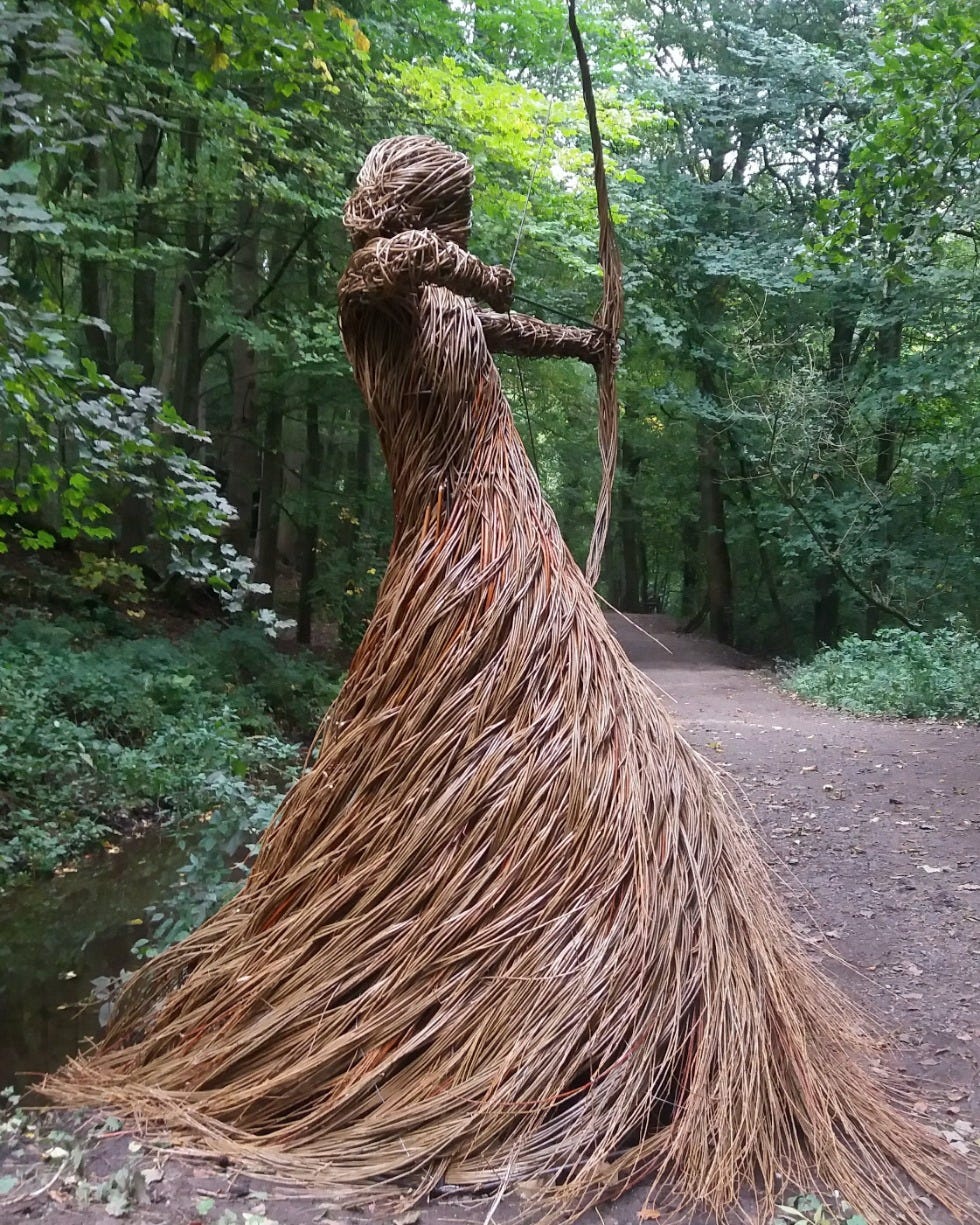We so often say that the solstice is the beginning of the end, that the long light now wanes, that we are now tipping downhill toward winter. The days grow shorter, the shadows longer, and all the almanacs gently suggest we prepare for the darker half of the year. This is useful, in its way. It is a valuable acknowledgement and a reminder to spend time well.
It is not the only truth of this season however and it may overshadow an equally important acknowledgement.
What this mournful cry of waning days overlooks is the unrecognized truth that you have spent all year working towards something good and now you are letting it fly into the world. All winter you planned and gathered and plotted, all spring you built and grew, and now—just now—the work you’ve been quietly shaping behind the scenes is taking off.
The arrow has left the bowstring.
The rocket has cleared the atmosphere.
The swarm has taken flight.
This is not a time for mourning the light. This is a moment of celebration; in this liminal space between verdant growth and abundant harvest, the thing you made is no longer yours to mold. It has left your heart and it has entered the world.
Consider an archer. She does not simply shoot an arrow; she builds the bow or chooses it with care. She tests the string, oils the wood, sharpens the broadhead. She steps to the line and nocks the arrow. She draws, breathes, finds form, and waits for the moment when all parts align. Then she looses. The arrow is released, flying fast and sure, and nothing can be done to recall, correct, or guide it. In this moment there is both risk and triumph. She no longer has control, but she does have completion. The arrow flies true because she made it so long before she ever released the string. This is what mid-summer offers: not the end of things, but the culmination of realizing their trajectory. Plans manifest into substance! You do not control the result now but you get to watch it soar! There is liberty here.

Around New England, beekeepers are placing honey supers on their hives. The bees came in May, thousands of them in screened boxes. The keepers gave them sugar syrup, watched over their queens, added the second superstructure in June as their populations exploded and their waxwork filled every frame. Now? Now it is out of their hands. The feeder jars are gone, the nectar flows, and the honey supers are on. These are the final additions that the bees will fill with the good stuff of July and August: nectar drawn from thistle and clover, goldenrod and milkweed. We cannot make them fly or forage or draw wax. We cannot convince them to make honey. We can only provide the structure, the space, the opportunity. We are the archer again, string slack, bow lowered, watching what we started unfold. There is a kind of reverence in this helplessness, an earned peace in knowing you did your part and now you must let go.
Too often we say, “It’s out of my hands now,” like some kind of surrender but what if we meant it as a benediction? What if letting go wasn’t resignation but relief? There is a strange liberty in admitting that you’ve done all you can. The chicks are in the coop on their own. The bees could leave if they so choose. The seedlings are blooming where you planted them. You have made the conditions right and now the good work can thrive.
This letting go is mirrored in the sky right now, in the darkened disc of the new moon. Unlike the showy full moon that reflects and amplifies, the new moon invites something quieter. The sky is dark, open, potential.
A pause.
A breath.
A portal.
It is not the dramatic culmination of harvest or climax yet; it is but the quiet denouement that allows you to ask: what next? What do you do now that the arrow is flying? What is the role of the archer once the string is loosed?
This is the blessing of this precise moment in the year. It is not the crescendo of spring’s bustle, not the toil of harvest, not the rest of winter. This is the hinge. The sweet breath between exhale and inhale. The hives are humming. The fields are glowing with fireflies. The summer woods are jungle-thick with jewelweed and fern. The chicks are leaping from their brooder box. The bees are drawing their comb.
All things are growing, all good plans put in equally good motion.
Now you—if you have done your work—are watching the good thing you built begin to live on its own. There is a quiet kind of pride here: the warm satisfaction of knowing you did your part, and now the thing itself has wings.
Do not rush past this feeling. Let it fill you. Let it mark this solstice, this turning of that old wheel, as the moment your work began to shine not from your light, but from its own.
Three Actions to Live a More Grounded Life
Keep reading with a 7-day free trial
Subscribe to Echoes from an Old Hollow Tree to keep reading this post and get 7 days of free access to the full post archives.




